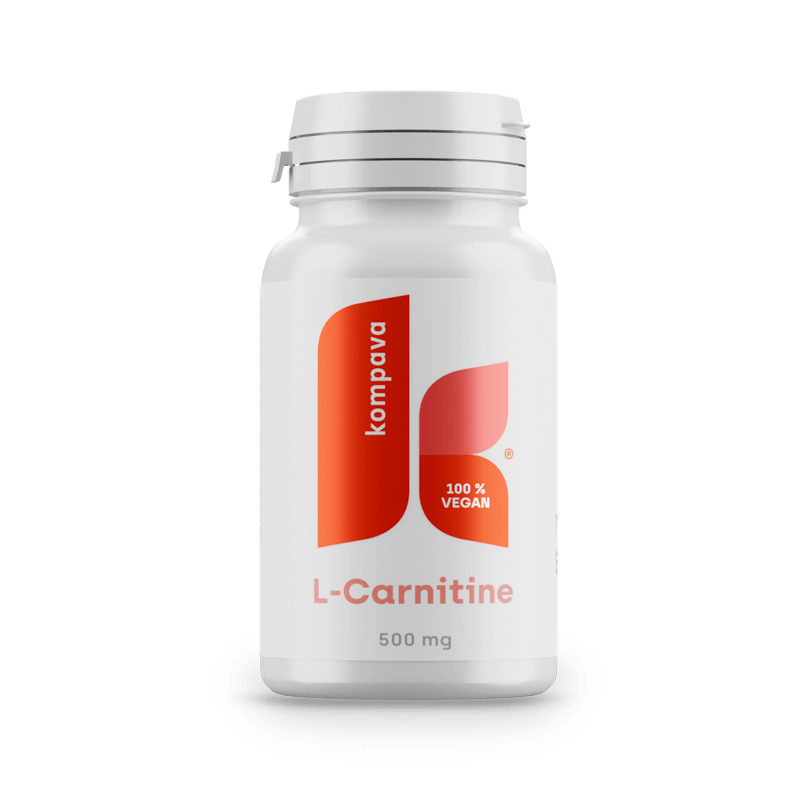
One capsule contains 500 mg of L-carnitine tartrate, which is more usable than other forms of L-carnitine.
L-carnitine tartrate
L-carnitine is a vital and natural nutrient for the body, which plays a fundamental role in the body's energy metabolism, and therefore also fat metabolism. It transports fatty acids to mitochondria, the energy sources in cells that convert fatty acids into energy. It contributes to the use of fats as the preferred fuel for muscles and reduces the production of lactic acid. Without L-carnitine, fatty acids cannot reach the mitochondria and the body cannot burn fat. Carnitine is a substance that the body can partly produce on its own, and partly we have to take it in with food. The main importance of carnitine lies in mediating the supply of energy to the skeletal muscles.
Roles of L-carnitine:
- Energy metabolism: L-carnitine plays an important role in the transfer of fatty acids to the mitochondria, where the oxidation of fats for energy takes place. This process is crucial for the energy metabolism of cells, especially muscle cells.
- Support for heart health: Heart cells are energy intensive and depend on fat oxidation. L-carnitine may be beneficial for heart function and support of heart health.
- Muscle endurance: Athletes use L-carnitine as a dietary supplement to improve muscle endurance and promote fat burning.
- Protection against muscle loss: L-carnitine can play a role in the protection of muscle mass and the prevention of muscle loss, especially during long-term physical activities or in certain diseases.
- Antioxidant properties: L-carnitine also has antioxidant properties, which means it can help protect cells from free radical damage.











